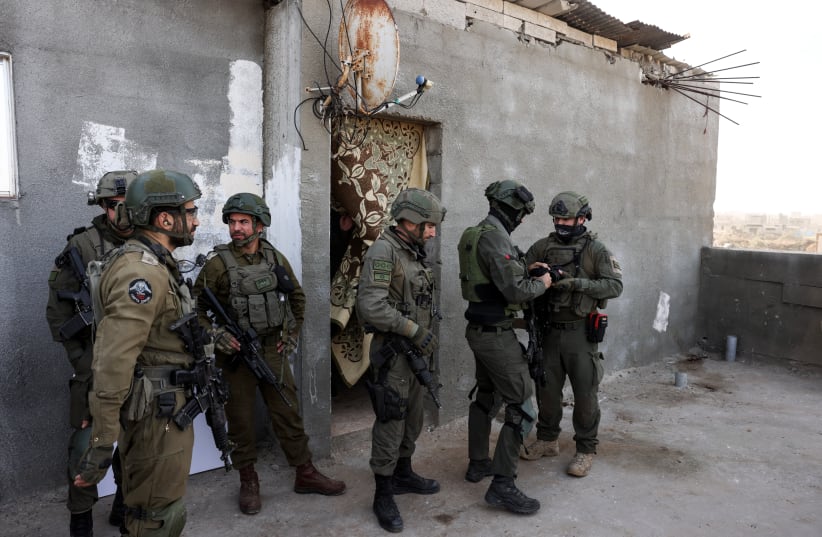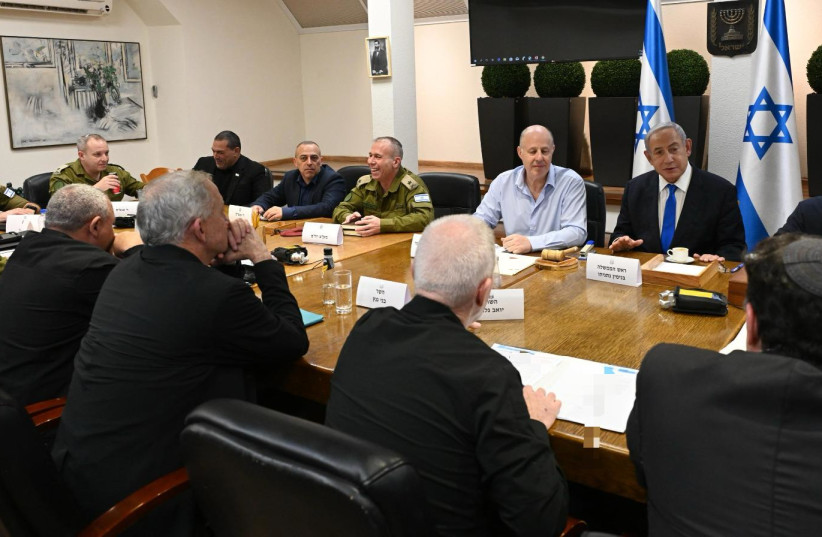Having learned they had captured Joseph Stalin’s son, the Nazis had an idea: exchange the boy – artillery Lt. Yakov Dzhugashvili – for Field Marshal Friedrich von Paulus, the commander who surrendered Stalingrad.
Stalin’s answer – a flat refusal – came wrapped in patriotic cellophane. All Soviet prisoners, he said, are his sons, so there was no way he could prefer one over the rest.
That explanation ignored his condemnation of all Soviet POWs as cowards who should have fought to their deaths. Worse, a special decree – Order #270 – defined every Soviet POW as a deserter who should be executed. This is besides the fact that Stalin didn’t raise his son – he was away fighting with the Bolsheviks – and evidently didn’t care for him.
Hence the attitude that is the perfect opposite of us Israelis’ attitude toward any of us who is taken captive, in the spirit of the ancient prayer still cited regularly in synagogues for “our brethren, all the children of Israel who are in trouble or captivity, may God have mercy on them and lead them from trouble to liberty, from darkness to light, and from slavery to redemption.”
Facing a dilemma on how to proceed during the war
That is the context of the wrenching dilemma we now face as barbarians set out to manipulate our Jewish instincts and abuse our humanistic norms. Now, with the war lagging, and impatience with this government’s record growing, a debate over a prospective deal’s price is brewing and pressure to agree to any deal is growing by the day.
It’s a defeatist and reckless approach that the Jewish state cannot afford.
The debate began the morning after “Black Sabbath,” when Col. (res.) Yigal Carmon of the MEMRI research group said that Israel should offer all the prisoners it is holding in return for all Israeli hostages.
Few people know whether that formula was ever officially offered, but the formula we ended up with – a limited exchange for a limited ceasefire – was universally welcomed. Moreover, it vindicated the claim that the IDF’s pressure is an effective lever on Hamas’s leaders.
Now, six weeks after the last of an aggregate of 70 Israeli hostages was released, there is a justified sense that a new deal is nowhere in sight, that the previous formula no longer works, and that the situation of more than 130 abductees still held in Gaza’s suffocating tunnels is deteriorating by the day.
Writing out of this nadir, Yediot Aharonot’s Nahum Barnea last week reported that the deal that negotiators are promoting involves eight points:
A three-month ceasefire; a phased release of all hostages, the living and the dead, with the elderly and the wounded coming first; release of thousands of Palestinian convicts; the IDF’s withdrawal from Gaza; redoubling humanitarian aid shipment into Gaza; displaced Gazans’ return to the northern strip; the establishment of an internationally financed administration for Gaza’s reconstruction; and Hamas’s inclusion in Gaza’s future government.
Barnea, the dean of Israel’s journalists and an Israel Prize laureate, then asked: “Does the hope for 136 Israelis’ lives justify such prices?” and answered his question himself: “I think it is.”
The inverted argument was offered earlier by Yedidia Stern, president of the Jewish People Policy Institute and a Bar-Ilan University law professor, who wrote in this newspaper that “the call to release the abductees at any cost must be rejected.” The 1,000 terrorists released in 2011 for Gilad Schalit’s, he reasoned, “were set free to plan the death trap” we met in 2023.
Jewish heritage, added Stern, counts hostages’ redemption among its highest values, but at the same time also caps the price of their release. “The captives are not redeemed for more than their actual value,” he quoted the Mishna (Gittin 4:6).
Between these two poles, and with a very heavy heart, this writer sides with Stern who, like all Middle Israelis including this one, has much immediate family deep in the current fighting.
Anyone who ever negotiated anything knows that the first rule of negotiation is to bargain with a red line in mind, a maximum price above which one will not pay even one penny. Now, as we digest what was done to us last October, we must draw such a red line as we set out to free our hostages.
OUR RED line should be drawn with a political marker and a military ruler.
The political red line has to be that Hamas does not get another day in Gaza’s government, in any size or capacity. This is not just a moral imperative or a political prerequisite. It’s a strategic precaution.
The fanaticism of the hatred Hamas has cultivated over the decades, and the intensity of the violence it has just displayed, must make us assume that anyone associated with this ideology is dedicated to nothing but our massacre and that, if given an opportunity, will always be guided by this obsession.
We must, therefore, avoid any empowerment of any of Hamas’s members, or the Jewish state will lose its sense of security, not to mention its merciless neighborhood’s respect.
The military red line we must draw stems from this political red line, and says plainly: we will continue fighting Hamas; physically, frontally, and stubbornly, until Gaza’s military disinfection.
The Gaza Strip should thus be divided into a grid of several dozen blocks separated by bulldozed dirt roads. Each block will be given to one IDF unit that will comb it street after street, alley after alley, house after house, so that every tunnel, shaft, armory, or missile launcher within it is found and destroyed, even if this takes months, years, or decades.
Under one of those blocks, we will find our hostages and their captors. That’s how victory can arrive, negotiations can begin, and the war can end.
www.MiddleIsrael.netThe writer, a Hartman Institute fellow, is the author of the bestselling Mitzad Ha’ivelet Ha’yehudi (The Jewish March of Folly, Yediot Sefarim, 2019), a revisionist history of the Jewish people’s political leadership.

